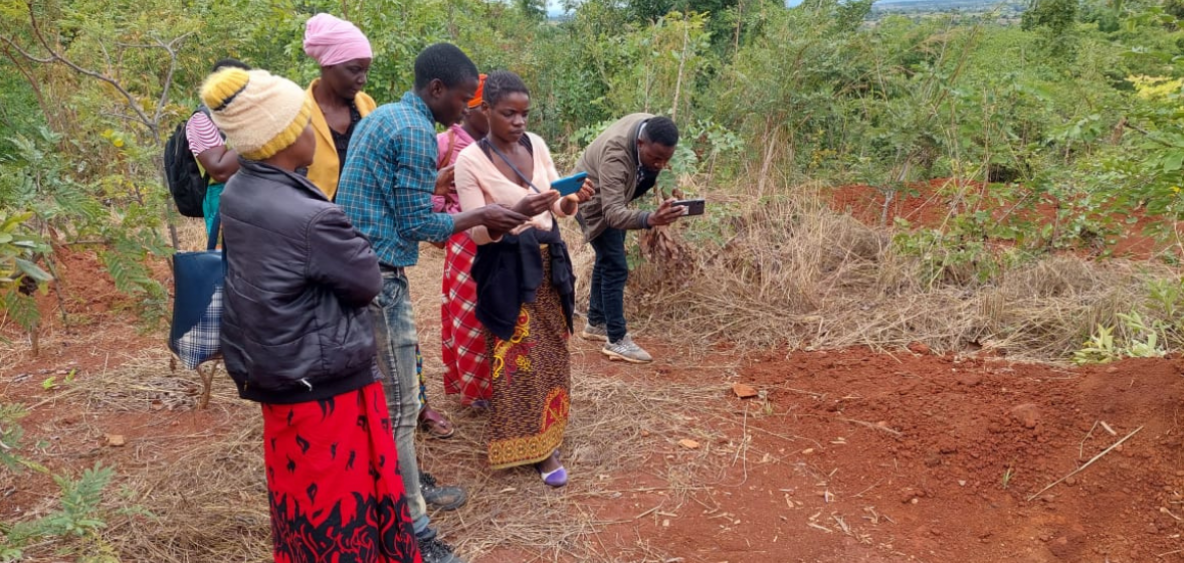
On 14th December 2022, the FAO initiative MEV-CAM held a Forestry Technical Network webinar to reflect on the previous year’s experiences with implementing the initiative.
It has been a busy year for the Making Every Voice Count for Adaptive Management initiative: the last 12 months have seen the initiative expand its participatory approach to process documentation and development across 18 countries. As we begin to look towards 2023, MEV-CAM held a Forestry Technical Network webinar to reflect on the year’s progress, identify the best practices applied by MEV-CAM countries and highlight the tools used to contribute to their impact at scale.
The webinar held on the 14th of December united FAO staff and the Insightshare team, who have worked alongside MEV-CAM over the past year to train 53 people on how to create, share and disseminate knowledge, and monitor the change brought by their initiatives. This was complemented by case studies from the field, exploring how three countries from both Global Environment Facility's Resilient Food Systems and Dryland Sustainable Landscapes Impact Programmes have applied MEV-CAM to their contributions to advancing the UN Decade on Ecosystem Restoration through MEV-CAM’s innovative techniques.
MEV-CAM’s core team opened the event, with MEV-CAM Facilitator Victoria Valenzi welcoming the audience of over 50 people, before handing over to FAO Dryland Forestry officer Fidaa Haddad, who gave a comprehensive overview of MEV-CAM’s objective and methods. So far, the MEV-CAM initiative has clearly demonstrated that the use of participatory video as a tool to learn and engage can also inspire knowledge sharing. This is evident in the 16 good practices identified thus far, which are used to scale deep between communities that are sharing common challenges, scale-up potential advocacy on the needed restoration actions on the ground, and scale out enhancing replicability and achieving greater impact.
Pooja Kishnani from Insightshare followed with an insightful presentation on the importance of Participatory Video (PV), giving a clear overview of when, how and why it can be used to monitor change and development, as well as advocacy. She drew attention to some of the challenges faced by the PV approach, such as the need to promote a gender-sensible approach on the field, since women play a crucial role in enhancing sustainable land restoration and management practices but are often neglected. Pooja also elaborated on Malawi's PV process in the Lingoni Catchment, located in Machinga District, which illustrated how community forest management systems help avoid the illegal cutting of trees through role play.
We then had an exciting opportunity to hear case studies in the field from “trainees” who have implemented the MEV-CAM method in their projects. From Mongolia, Javzansuren Norvanchig explained how she is planning to apply the PV process as part of the GEF-7 Dryland Sustainable Landscapes Impact Programme to extract best practices and understand the impact at scale with regards to pastureland management for dryland restoration. Next Gerald Gindo, FAO’s National Monitoring and Evaluation Specialist in Tanzania, demonstrated how he has applied the PV process in Tanzania to understand more about the Hadzabe community in the GEF-6 Resilient Food Systems landscape, and how he will upscale these lessons learned in the GEF-7 DSL-IP. By developing a PV, the local community has raised awareness of the importance of stopping deforestation, and the benefits that beekeeping can bring as a sustainable livelihood. From Burundi, Eddy Bellard shared how the PV approach has contributed to community empowerment, enabling them to identify the changes brought to their landscapes by the GEF-6's Resilient Food Systems interventions, and highlight needs that are still to be addressed. He also summarized the main characteristics of the best practices identified by their communities in the Mwaro and Gitga provinces in Burundi: improved cookstoves, watershed management through using bamboo and agroforestry.
The event concluded with Fritjof Boerstler, FAO’s Senior Natural Resources Officer and Coordinator of the GEF-7 DSL Impact Programme, explaining the benefits of the MEV-CAM method for the Impact Programme, the first impact programme under GEF (Global Environment Facility) 7 led by FAO. MEV-CAM will be working closely with the DSL-IP over the next year to use this innovative process documentation approach to extract and disseminate best practices. Athifa Ali, FAO Programme Officer from the South-South and Triangular Cooperation Division, closed the event, highlighting the importance of MEV-CAM for knowledge exchange between South-South countries, and how MEV-CAM's approach is essential for the South-South Cooperation's knowledge exchange.
The MEV-CAM initiative has been active since 2020 providing more than 100 trainees with knowledge on participative methodologies to empower communities. Since 2021, MEV-CAM has prepared 3 trainees on how to create, share and disseminate knowledge, and monitor the change brought by their initiatives, from the communities' point of view. MEV-CAM already has big plans for 2023, with the plan to expand into the Latin America region to further knowledge sharing across the Global South.
This article was originally published by FAO
Subscribe to our monthly newsletter to receive updates on stories directly from the field across all our projects, upcoming events, new resources, and more.